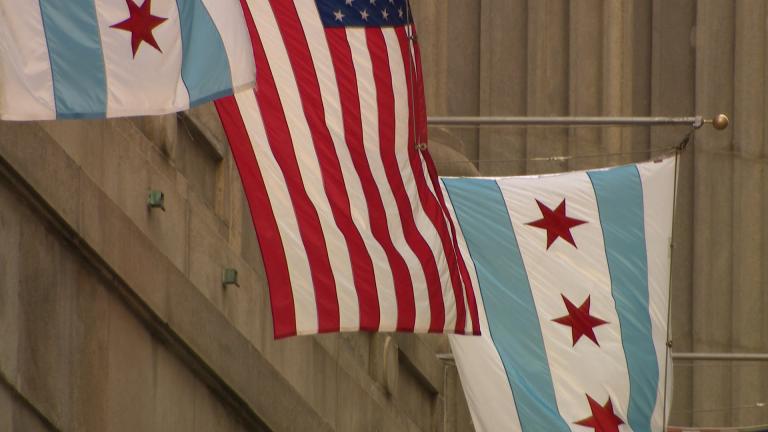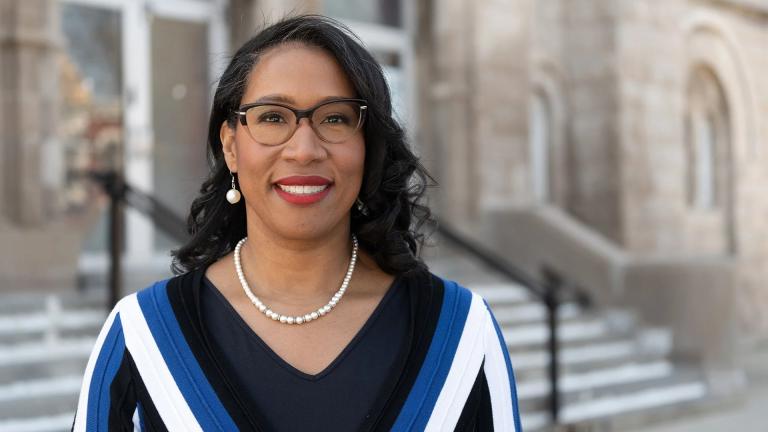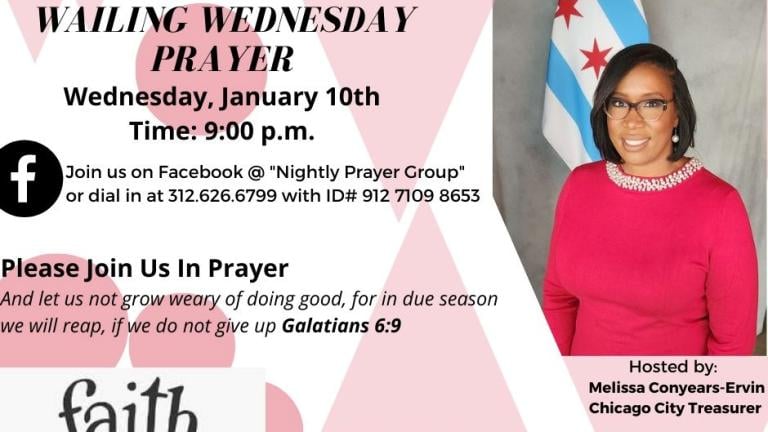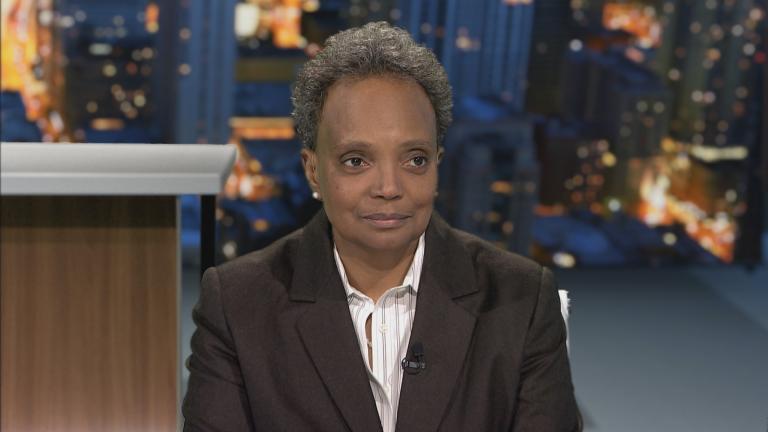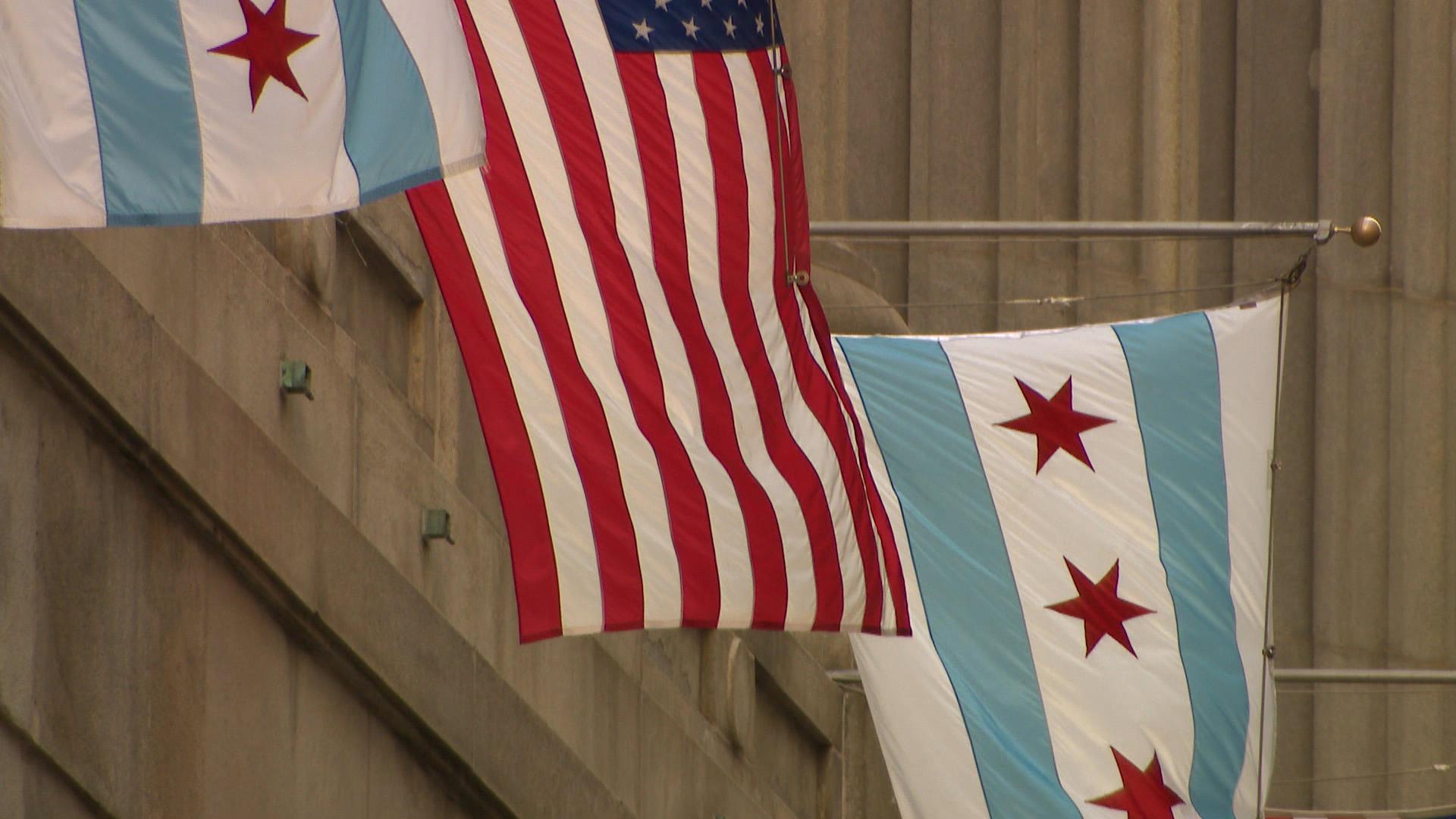 (WTTW News)
(WTTW News)
Chicago’s ethics ordinance should be tightened to apply to political fundraising committees to prevent future city officials from escaping sanctions for violations, including sending emails to city employees at their official city email addresses asking them to send cash to their campaigns, the Chicago Board of Ethics urged the Chicago City Council.
The recommendation followed the Ethics Board’s unanimous decision Nov. 13 to dismiss a complaint prompted by Inspector General Deborah Witzburg’s determination that former Mayor Lori Lightfoot committed three violations of the city’s Governmental Ethics Ordinance by sending pleas for cash to city employees.
The board’s decision to dismiss the complaint against Lightfoot came after attorneys for the former mayor vigorously fought any finding of wrongdoing for nearly six months. The board found no evidence that Lightfoot herself “was involved in drafting, disseminating or approving the emails at issue” that were sent by her campaign in her name nor did she “have knowledge of these emails at the time they were sent to cityofchicago.org email addresses,” according to an unusual memo released by Board Chair William Conlon.
In keeping with the rules governing the inspector general and Chicago Board of Ethics, Lightfoot was not named in connection with this complaint, but Lightfoot confirmed she was the subject of the complaint in a statement to WTTW News.
During the probe, the inspector general’s office “obtained political campaign emails sent by the official’s political campaign which demonstrated that the official misused their city title in pursuit of a political purpose, as well as misused the authority of their office and city email addresses for a political purpose. The political campaign emails also demonstrated that the official improperly solicited political donations from city employees, over whom the official had supervisory authority,” according to the report.
In March 2022, the Chicago Board of Ethics warned Lightfoot to stop sending emails touting her bid for reelection and raising campaign cash to Chicago employees at their cityofchicago.org email addresses, as first reported by the Chicago Tribune.
Lightfoot failed to uphold her fiduciary duty to the city, misused city property by identifying herself in campaign emails as the mayor of Chicago and solicited campaign contributions from employees she supervised, according to the city’s watchdog.
The board unanimously agreed with Witzburg that those emails violated the city’s Governmental Ethics Ordinance.
“Regrettably, the relevant sections of the ordinance do not allow for the board to find a political fundraising committee liable for violations of these sections of the ordinance,” according to the memo signed by Conlon. “Instead, it allows for the board to find violations only against city officials, employees and candidates for city office of violations. Hence, in effect, there is no way for the board to hold the responsible party here – the fundraising committee – accountable under current law.”
The City Council must act to give the board and the inspector general “jurisdiction over political committees involved in city of Chicago municipal elections,” according to Conlon’s memo.
In a separate opinion, Ethics Board Member Ryan Cortazar joined the board’s call for the city’s ethics ordinance be amended to include jurisdiction over political committees but warned that would not matter, since the evidence in the case showed neither Lightfoot nor her campaign committee “acted intentionally, knowingly or with willful blindness” when the emails were sent.
The board’s ruling makes it unlikely Lightfoot will be fined in connection with another set of emails sent by her campaign that triggered multiple ethics investigations. It could also complicate efforts to hold public officials or candidates responsible for other kinds of violations, unless the City Council acts to change the law, sources told WTTW News.
As WTTW News was the first to report, Lightfoot’s campaign sent an email to Chicago Public Schools teachers asking them to encourage their students to volunteer to help Lightfoot win a second term as mayor – and earn class credit. Lightfoot’s campaign sent similar emails to City Colleges faculty members.
Those emails are being investigated by the inspector general for the Chicago Public Schools and Witzburg’s office.
After first defending the emails, Lightfoot told reporters that it had been a mistake for her campaign to send those emails and blamed “a young staffer” for making a “mistake” that was “well intentioned.”
Witzburg’s determination that Lightfoot violated the city’s Ethics Ordinance was at the center of her ongoing effort to pursue enforcement of Chicago’s ethics rules with “greater frequency and rigor than ever before — paying down the deficit of legitimacy at which the city operates by ensuring that people who break the rules are held accountable, regardless of their positions.”
Witzburg said that push would continue, regardless of the board’s decision.
“The Chicago Way wasn’t built in a day, and we will not undo Chicago’s culture of corruption overnight,” Witzburg said in a statement to WTTW News. “We will continue to pursue aggressive enforcement of the City’s ethics rules until there is a shared understanding that those in positions of public trust owe Chicagoans better.”
Ald. Matt Martin (47th Ward), the chair of the City Council’s Ethics Committee, said he was open to revising the city’s Ethics Ordinance to ensure “potential loopholes are closed,” Martin said.
The actions of campaign committees deserve close scrutiny, Martin said.
“We must move more aggressively to restore public trust,” Martin said.
The board’s decision in Lightfoot’s case angered some City Hall observers who have long been frustrated by the board’s approach to alleged breaches of the city’s ethics ordinance.
The board, made up of mayoral appointees confirmed by the City Council, has no investigatory powers and must rely in most cases on work performed by the inspector general’s office to punish violations.
That means the board most often acts after the news media or watchdog uncovers a scandal. Before 2019, the maximum fine the board could impose was $2,000 per violation. That was increased to $5,000 in the wake of the indictment of now-former Ald. Ed Burke (14th Ward) and then to $20,000 in 2022.
The Ethics Board is also charged with enforcing Chicago’s limits on campaign contributions from companies and people doing business with the city, which are limited to contributing $1,500 to any one candidate per year.
While the board levied the maximum potential fine against Ald. Jim Gardiner (45th Ward) in October for retaliating against a frequent critic and political foe, it stopped well short of that in a 2021 case against former Ald. Carrie Austin (34th Ward), who is under indictment.
In January 2021, the board fined Austin $145,500 for accepting $48,500 in excessive contributions from a person doing business with the city, in violation of city law. But in April 2021, the board reduced that amount to $5,000.
Steve Berlin, the executive director of the Chicago Board of Ethics, told WTTW News the board decided to reduce the fine for Austin by more than 96% “after considering the equities of the situation.”
The alderman’s fine is now “equal [to] the amount [the board] levied on the company that made the contribution that violated the law in the first place,” Berlin said.
However, the standard set by the board in the Lightfoot case could allow an elected official to argue that since the Ethics Ordinance covers only individuals and not campaign committees, they should not be held responsible for a decision by their campaign committee to accept an improper contribution.
In the Austin case, there was no evidence presented publicly that Austin solicited, personally accepted or even knew about the improper contributions as part of the Ethics Board’s consideration of the violation.
That is an area of serious concern that the Ethics Committee will consider, Martin told WTTW News.
Contact Heather Cherone: @HeatherCherone | (773) 569-1863 | [email protected]

